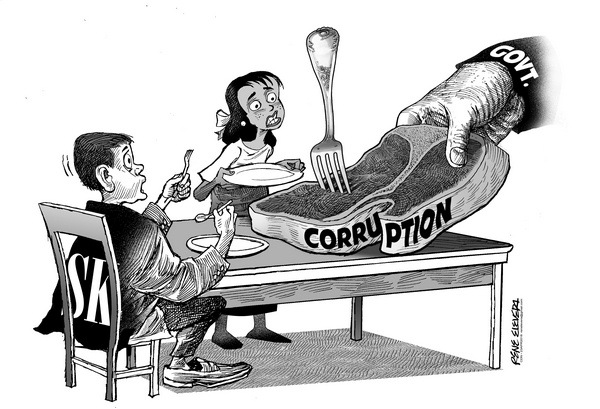
Lest the anti-dynasty provisions of the law covering village youth councils be watered down, the Commission on Elections (Comelec) and civic organizations must find ways to restore young people’s trust in the government.
That should be the most important step in encouraging competent and deserving youngsters to participate in politics and governance through youth councils.
With a youth population of at least 33 million, it is simply hard to believe that the ban on relatives of public officials from running for youth councils is largely responsible for the fact that there are fewer Sangguniang Kabataan candidates than available positions.
The anti-dynasty provisions are means for enabling the redistribution of power and shielding barangay youth councils from the dirt of parochial traditional politics.
It should not so soon or at anytime be touted as a problem.
The next step towards empowering the masses and the marginalized is not to count anti-dynasty provisions as a defect but to convince would-be leaders that inroads have been made against feudalism in politics, that a clearing has been made of which fresh minds with bright ideas and a will to serve can take advantage.
The Comelec, civic organizations active in electoral processes, schools and churches would do well to come together to douse youthful cynicism — no matter how justified it is — towards the government.
Ted Frances Servano hinted at this cynicism explaining to Cebu Daily News the reason he thrice turned down an invitation to vie for a seat at an SK in San Fernando town, Cebu.
“I don’t want anybody to run after me after my term. In politics, everyone will have something bad to say against you no matter how much you try to do your job well,” he said.
“I am very much exposed to a lot of leadership opportunities where I can utilize my ideas for the benefit of the community and my country. There are a lot of youth organizations in both public and private groups where I can render my service as a member or as a leader.”
Such thoughts echo the mood of a young populace for whom the image of the SK remains tainted by its history of being treated like fiefdoms by older politicians, most of them relatives of youth leaders whose terms are expiring.
For some time, calls had been made for the abolition of youth councils. The councils have survived these campaigns and this reflects the popular will to give youths a platform to help steer the nation’s course through elected civil service.
The invitation, as shown in the shortfall in the number of youth council candidates is far from convincing.
Young people must therefore be shown with clarity how campaigning for and serving from a youth council seat is a fulfilling mission worthy of their talent and some of the best years of their lives, not a ticket to becoming jaded.